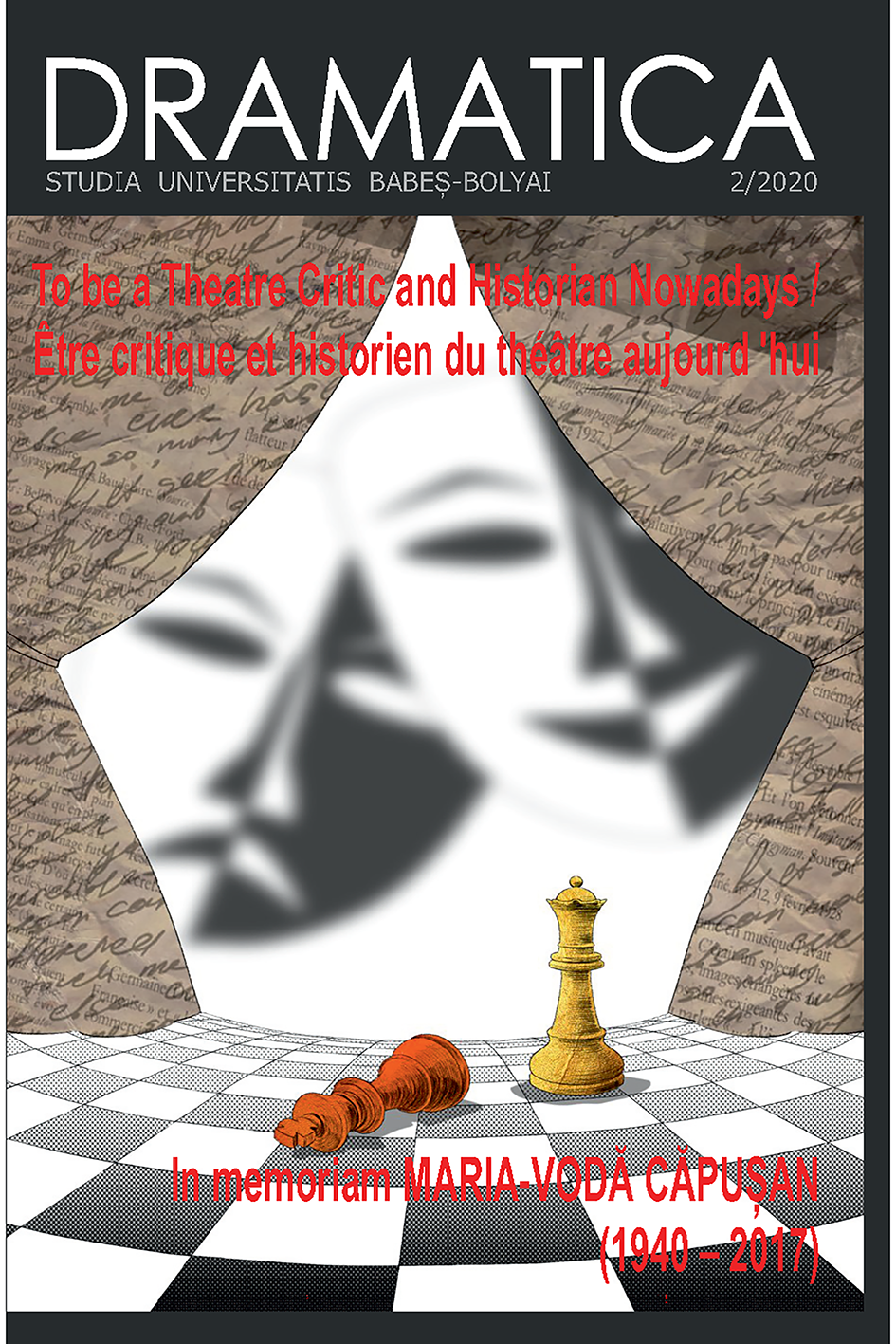Caligula, tyran dérisoire dans le Caligula d’Alexandre Dumas
DOI:
https://doi.org/10.24193/subbdrama.2020.2.04Keywords:
Latin historiography, drama, destiny, machinations, tyranny.Abstract
Tyranny and Derision in Alexandre Dumas’ Caligula. This paper studies the character of Caligula in Alexandre Dumas’ Caligula (1837) in comparison with the image left by the Roman emperor in ancient literary sources. Dumas highlights a tyrannical regime based on denial and flattery, shows the emperor as a tyrannical lover and mocks aspirations to the divinity of the one who takes himself for Jupiter, but is afraid of thunder, who wants to be the master of the destiny of all, but doesn’t master his own, falling under Messalina’s machinations.
References
Barrett, Anthony A. Caligula : the abuse of power. London/New York : Routledge, 2014 (2e éd.).
Boulerie, Laure. « La tentation de la tragédie classique chez Dumas ». In Le Théâtre de Dumas père, entre héritage et renouvellement, ed. Anne-Marie Callet-Bianco et Sylvain Ledda, 43-56. Rennes : PUR, 2018.
Callet-Bianco, Anne-Marie. « Introduction. Le théâtre de Dumas : un creuset dramatique ». In Le Théâtre de Dumas père, entre héritage et renouvellement, ed. Anne-Marie Callet-Bianco et Sylvain Ledda, 7-23. Rennes : PUR, 2018.
Camus, Albert. Caligula. Paris : Mauclaire, 1958.
Cooper, Barbara T. « Dumas et Corneille ». In Corneille des romantiques, ed. Myriam Dufour-Maître et Florence Naugrette, 19-31. Mont-Saint-Aignan : PURH, 2006.
Dumas, Alexandre. « Mon Odyssée à la Comédie-française », Souvenirs dramatiques, I in Œuvres complètes. Paris : Calmann Lévy, 1881, 185-292.
Dumas, Alexandre. Drames romantiques. Paris : Omnibus, 2002.
Frangoulidis, Stavros A. « Another ending : Gaius Caligula’s assassination narrative in Suetonius’ Caligula 56-60 », Ordia Prima, vol. 4 (2005) : 131-139.
Goldbeck, Fabian. « Die Triumphe der Julisch-claudischen Zeit ». In Der römische Triumph in Prinzipat und Spätantike, ed. Fabian Goldbeck, Johannes Wienand, 103-122. Berlin/Boston : De Gruyter, 2017.
Guarino, Antonio. « Caligulas Pferd », Zeitschrift der Savigny-Stiftung für Rechtsgeschichte. Romanistische Abteilung, vol. 124 (2007) : 332-335.
Guérin, Jeanyves. « Caligula vu par Suétone, Dumas et Camus. D’une figure historique à un personnage théâtral ». In Les Formes de la réécriture au théâtre, 2006, 213-222.
Gury, Françoise. « L’idéologie impériale et la lune : Caligula », Latomus, vol. 59, n° 3 (2000) : 564-595.
Humphrey, John William. An historical commentary on Cassius Dio’s Roman History, book 59 (Gaius Caligula). University of British Columbia, 1976.
Icks, Martijn. « Turning victory into defeat : negative assessments of imperial triumphs in Greco-Roman literature ». In Der römische Triumph in Prinzipat und Spätantike, ed. Fabian Goldbeck, Johannes Wienand, 317-333. Berlin/Boston : De Gruyter, 2017.
Kavanagh, Bernard Joseph. « The identity and fate of Caligula’s assassin, Aquila », Latomus, vol. 69, n° 4 (2010) : 1007-1017.
Levick, Barbara. Claude, trad. Isabelle Cogitore. Gollio : Infolio, 2002.
Melai, Maurizio. « Caligula, ou de la synthèse rêvée des genres dramatiques sous l’égide de l’histoire ». In Sculpter l’espace : ou le théâtre d’Alexandre Dumas à la croisée des genres, 171-182. Paris : Classiques Garnier, 2019.
Pinon, Esther. « L’ombre de Cassandre : l’héritage de la tragédie antique dans le théâtre de Dumas ». In Le Théâtre de Dumas père, entre héritage et renouvellement, ed. Anne-Marie Callet-Bianco et Sylvain Ledda, 29-42. Rennes : PUR, 2018.
Razgonnikoff, Jacqueline. « Le premier péplum. Le renouvellement de la mise en scène tragique par Dumas (Caligula, Comédie-Française, 26 décembre 1837) ». In
La Fabrique du théâtre. Avant la mise en scène (1650-1880), ed. Mara Fazio et Pierre Frantz, 175-186. Paris : Desjonquères, 2015.
Ronning, Christian. « Zwischen ratio und Wahn. Caligula, Claudius und Nero in der altertumswissenschaftlichen Forschung ». In Zwischen Strukturgeschichte und Biographie : Probleme und Perspektiven einer neuen Römischen Kaisergeschichte 31 v. Chr.-192 n. Chr., ed. Aloys Winterling, 254-262. München : Oldenbourg, 2011.
Klaus Scherberich. « Josephus und seine Quellen im 19. Buch der Antiquitates Iudaicae (Ant. Iud. 19, 1-273) », Klio, vol. 83, n° 1 (2001) : 134-151.
Woods, David. « Caligula, Incitatus, and the consulship », Classical Quarterly, N. S., vol. 64, n° 2 (2014) : 772-777.
Yavetz, Zvi. « Caligula, imperial madness and modern historiography », Klio, vol. 78, n° 1 (1996) : 105-129.
Downloads
Published
How to Cite
Issue
Section
License
Copyright (c) 2020 Studia Universitatis Babeș-Bolyai Dramatica

This work is licensed under a Creative Commons Attribution-NonCommercial-NoDerivatives 4.0 International License.


